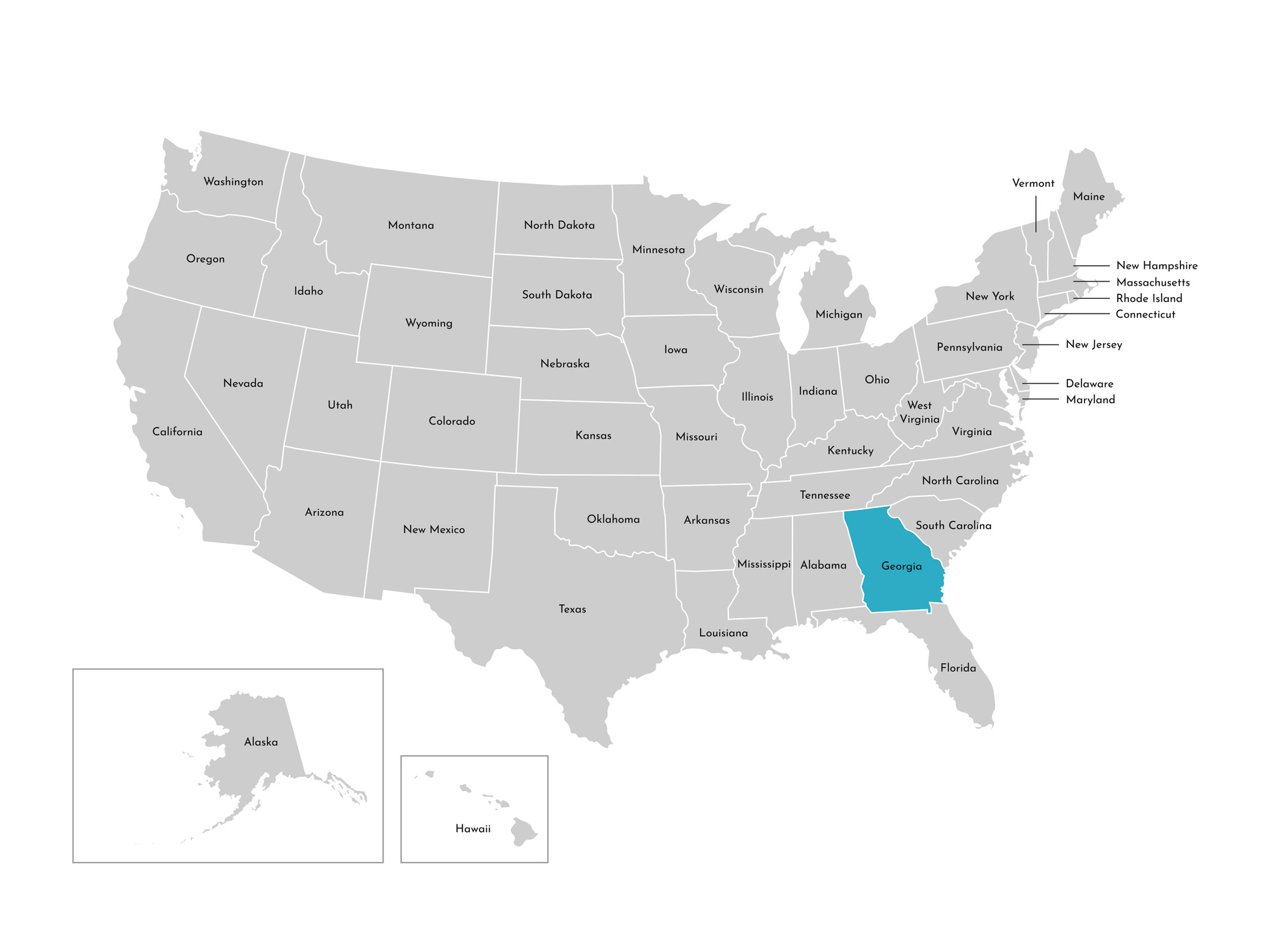Joe Biden is the president-elect of the United States. But the scope of what a Biden administration can accomplish will depend on which party has control of the United States Senate. And that is still up in the air.
In the races called thus far, Democrats flipped a net of one seat. With vice president-elect Kamala Harris breaking ties, Democrats need to flip three seats in total to take control of the Senate. But there are still four seats currently held by Republicans that, as of this writing, have not been called.
In North Carolina, Senator Thom Tillis (R) appears to have a commanding lead of about 95,000 votes over his Democratic challenger, Cal Cunningham. In Alaska, Senator Dan Sullivan (R) has a large lead over challenger Al Gross, an independent who would caucus with Democrats. But the current total does not reflect most mail-in ballots, which are expected to heavily favor Gross. So Gross still has a chance, although it appears to be an uphill battle.
Control of the Senate, therefore, will probably come down to two Senate seats in Georgia. In Tuesday's election, no candidate for either Senate seat won 50% or more of the vote. That means, under Georgia law, there will be two run-off elections on January 5, 2021. In one, Senator Kelly Loeffler (R), who won about 25.9% of the vote on Tuesday, will face Democratic challenger Raphael Warnock, who won 32.9%. In the other, Senator David Perdue (R), who won 49.8% of the vote on Tuesday, will face Democratic challenger Jon Ossoff, who won 47.9%.
Much of the media, however, seems to be skipping over the races and assuming one or both of the Republicans will win. There are already a flood of stories speculating about how Biden will deal with Majority Leader Mitch McConnell (R-KY) and a Republican-controlled Senate.
Ultimately, these predictions could prove correct. Knocking off an incumbent Republican in Georgia is difficult. But Biden just defeated an incumbent Republican in Georgia. The politics of the state are changing.
And no one knows what the composition of the electorate will be in January. Republicans could be motivated by Trump's defeat and show up in droves. But they also could be demoralized and stay at home. There have never been two simultaneous run-offs to determine control of the Senate after an incumbent Republican was defeated. It's an unprecedented situation.
Further, the two Republican incumbents, Loeffler and Perdue, have serious liabilities. While the chaos of the November election allowed Loeffler and Perdue to deflect many of these questions and focus on their fidelity to Trump, in January there will be nowhere to hide.
Loeffler and Perdue's pandemic stock trades
Both Loeffler and Perdue have faced serious questions about whether they attempted to cash in on the pandemic in the stock market.
On January 24, Loeffler attended a private briefing for members of the Senate on the spread of COVID-19.
In the days that followed, Loeffler and her husband, Jeff Sprecher, conducted millions in stock transactions. (Sprecher's company owns the New York Stock Exchange and other trading markets.) Several of these transactions appear to be efforts to profit from the impact of COVID-19. Loeffler, for example, bought "up to $250,000 in stocks for Citrix, a company that provides work-from-home software." Loeffler and her husband also "purchased $1.5 million in put options, a type of investment that locks in prices even if a stock's value decreases." They also "sold shares in retail stores such as Lululemon and T.J. Maxx" and bought "shares in chemical giant DuPont de Nemours, a major supplier of personal protective gear."
In response, Loeffler said the stock transactions were made by her investment adviser and she had no involvement. You'll have to take her word for it, however. Loeffler's stocks were not placed in a blind trust — an arrangement that would have prohibited her involvement. She was under investigation by the FBI and the Senate Ethics Committee regarding the trades. Both inquiries were reportedly closed without action against Loeffler.
Nevertheless, Loeffler announced in April that she "will no longer invest in the stocks of individual companies" and that she and her husband were "liquidating our holdings in managed accounts and moving into exchange-traded funds and mutual funds."
Republican Congressman Doug Collins (R-GA), who also ran against Loeffler, was not impressed. "This is essentially a guilty plea," Collins' spokesperson said.
Perdue, who is also a multi-millionaire businessman, also was active in the markets as the pandemic took root in the country. Perdue purchased "up to $245,000 in the pharmaceutical company Pfizer" and "sold up to $165,000 in stocks for Caesar Entertainment," which was later forced to shutter many of its properties. Perdue also "reported 10 different DuPont stock purchases through March 2, representing an investment of up to $185,000." Perdue did invest "as much as $75,000 in retailer Urban Outfitter before all its stores were closed, although savvy investors often buy a stock when its price is down and they think it's a good value."
In response, Perdue said others made the trades on his behalf without consulting him. Like Loeffler, he later announced that "his advisers will no longer trade stocks in individual companies."
Loeffler's massive conflict of interest
Loeffler didn't sell all of her stocks. She and Sprecher kept their stake in Intercontinental Exchange (ICE), a firm founded by Sprecher that owns numerous stock exchanges including the New York Stock Exchange. Loeffler worked at ICE before being appointed to the Senate last year, drawing millions in compensation.
ICE falls "under the supervision of virtually every federal financial regulatory agency." But upon her appointment as Senator, Loeffler took a seat on the Senate Finance Committee where she helps "write laws that govern those regulators, approve appointments to their boards and vote on government policies that affect the company's -- and her own -- bottom line." ICE "deploys lobbyists to influence federal regulatory agencies and Congress, including committees on which Loeffler now sits." Her husband has regularly testified in front of the Committee.
"This gives Kelly Loeffler a direct position in overseeing her and her husband's financial enterprises. I find it utterly irresponsible the Senate would choose to put Loeffler on that committee, given her conflicts of interest," Craig Holman, a spokesperson for the watchdog group Public Citizen, said.
When Loeffler left ICE, the company "altered the parameters of Loeffler's compensation package and allowed her to cash in on stock options even though she resigned months before the original vestment date." The change made her "about $9 million richer and was in addition to her $3.6 million salary."
Loeffler and Perdue's racial politics
Loeffler and Perdue have made explicit and implicit appeals to racial resentments to win over certain white voters.
On July 7, Loeffler said she "adamantly oppose[s] the Black Lives Matter political movement." She has based her opposition on misinformation, such as her claim that the Black Lives Matter movement advocates for "the removal of Jesus from churches." Many members of the movement are clergy. She has also said that the Black Lives Matter movement is anti-Semitic, a position the Anti-Defamation League rejected as based on "internet rumors."
Popular Information's report this summer about Loeffler's comments on the Black Lives Matter movement cost her corporate support. Boston Scientific released this statement:
We are surprised and disappointed by Sen. Loeffler’s recent comments, which are inconsistent with the values we believed she held when we made a donation to her campaign in the first quarter of this year. We denounce the senator’s comments on the Black Lives Matter movement, we have not made any recent donations to her campaign and will not provide financial support in the future.
During the campaign, Perdue mocked vice-president elect Harris with a racist trope, deliberately mispronouncing her name. "Kamala? Kamala? Kamala-mala-mala? I don’t know. Whatever," Perdue said at an October Trump rally, as the crowd cheered.
The comments prompted a rebuke from Facebook, one of his corporate donors. "Sen. Perdue’s recent comments do not reflect the values or mission of Facebook. Our contribution was made before this statement," Facebook said in a statement to Popular Information.





